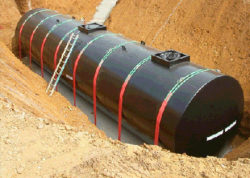 When must designated operators of UST systems meet operator training requirements?
When must designated operators of UST systems meet operator training requirements?
Designated operators must be trained according to individual state requirements. While the EPA required an August 8, 2012 deadline on states, the only deadline that is currently relevant to UST system owners and operators is the regulatory compliance deadline established by their state.
Many states adopted the August 8, 2012 deadline. Some states still need to finalize their requirements and will have later compliance dates. In those states without final requirements, operators do not need to meet training requirements until their state issues final requirements.
Who must be trained and what must the UST Training cover?
 According to EPA’s guidelines, states must identify three classes of operators and minimum requirements for each class.
According to EPA’s guidelines, states must identify three classes of operators and minimum requirements for each class.
The three operator classes and objectives of training described below are based on EPA’s guidelines. Owners and operators should check with the state where their USTs are located to determine state-specific operator class descriptions and applicable training requirements.
- Class A Operator
This is the person who has primary responsibility to operate and maintain the underground storage tank system. For a typical gas station, it is the owner of the station or his designee. For large corporations, this is the manager or designee responsible for tank operations. The class A operator can also be designated as a Class B operator as long as he/she has passed the Class B operator exam. - Class B Operator
This designation is for the individual or individuals who implement day-to-day aspects of operating, maintaining, and record keeping for underground storage tank systems at one or more facilities. For a typical gas station, it is the owner or the person/company contracted by the owner to maintain the tanks. For large corporations, it is the employee, or person/company contracted by the corporation to maintain the tanks. A broad knowledge base is required for a Class A operator, but the Class B operator must have in-depth knowledge of tank system operation and maintenance. - Class C Operator
This is an individual who is responsible for responding to alarms or other indications of emergencies caused by spills, releases, or overfills associated with an underground storage tank system. For a typical gas station, this is the cashier. Though an exam is not required, this person must be trained in responding to releases, alarms, and emergency conditions. Training can be performed by the Class A operators, Class B operators, or third-party vendors. Class C operator training is required to be documented.


























